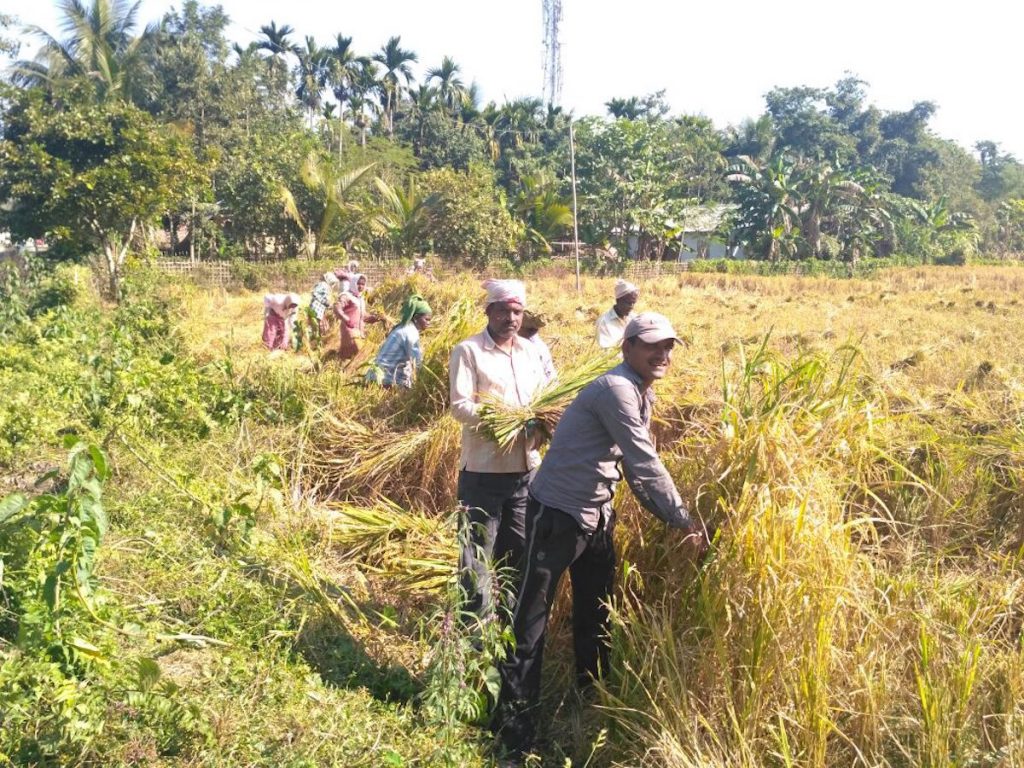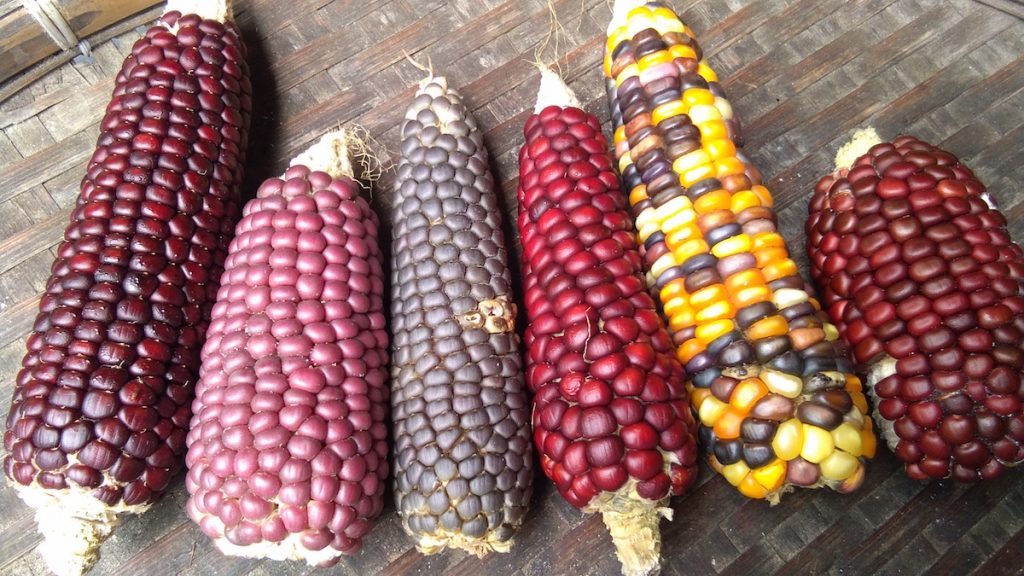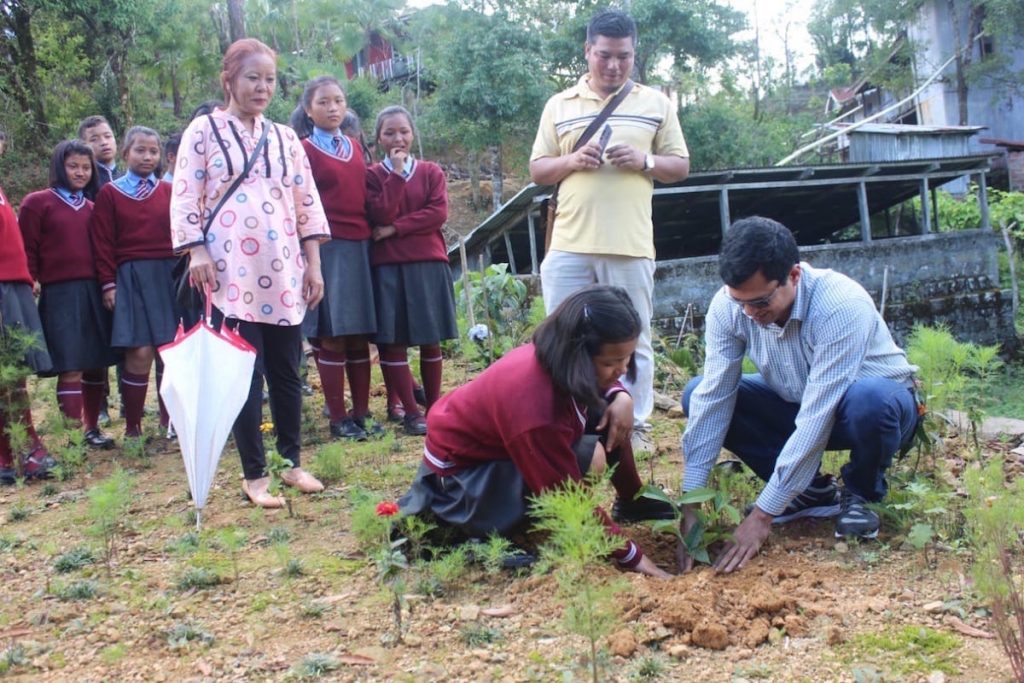Rosilia Kharumnuid from the north-eastern Indian state of Meghalaya toiled hard on her one-acre plot of land but the yield from it was always low.
No matter what Kharumnuid did, including applying chemical fertilizers, her yield of potatoes and cabbage always decreased. To add to her challenges, the 48-year-old said, that middlemen always cheated her on price.
“All that my produce fetched was a meagre Rs 3,000-4,000 ($40-52) a month which wasn’t enough for my family of five to subsist on,” she said.
Things changed for the better when Caritas India launched a FARM (Facilitating Agriculture Regenerating Measures) North East project in her village of Laitdiengsai in East Khasi Hills district.
Now her earnings have almost doubled to Rs 80,000–90,000 ($1,055-$1,187) per year after Shillong Diocese’s Social Service Center (SSC) implemented the project in her village.
“They taught us multi-cropping and organic farming. I got a poly house to produce organic products and I can sell them at a good price at a monthly farmers market organized by the SSC, avoiding middlemen,” Kharumnuid said.
The mushroom cultivation training she got also increased her income.

“Now at harvest time I get around 60 kg per day with a kilogram fetching around Rs 300. SSC and Caritas India also helped me start a local shop for promotion of indigenous and local food,” Kharumnuid added.
Nontam Munrey did a bit of farming at Jotin Kaikhe village in Arunachal Pradesh’s Changlang district.
She wanted to learn better farming methods and improve her income but that seemed a distant goal until Seva Kendra Arunachal East, a diocesan social service society under the FARM project, came to her village offering training in systematic farming, livestock and horticulture management.
She also went to Kandhamal district in eastern Odisha state for further training on improved traditional farming practices.
Besides practicing horticulture and animal husbandry, Munrey started cultivating areca nut and tea plantation on a large scale. Her annual earnings rose from Rs 15,000-20,000 ($198-$264) per year to Rs 70,000 to Rs 120,000 ($923-$1,583).
Now all of the farmers of Jotin Kaikhe village are following best agricultural practices ensuring food security for themselves.
“What they needed most was the right kind of facilitation,” said Prabal Sen, Caritas India’s North-East Zone state officer.
The goals of FARM projects are to help improve traditional farm activity, economic development and traditional health. It offers natural resource management with a blend of people-led empowerment to benefit the marginal farmers through collective actions.
Under this people led development approach, the farmers implement the program, act and make decisions. Caritas India and her partners only play the facilitators role.
Training is provided in farming skills, improving crop management and crop productivity, increasing access to local markets, improving seed selection for different soil types, improving irrigation and promoting organic fertiliser, said Sen.
A total of 63,656 people in the north-eastern region have so far benefitted from the project, he said.

Women are also encouraged to take up entrepreneurships in order to raise their income.
“We aim to work more intensively with women farmers for increasing food diversity especially nutritious food for fighting malnutrition which is endemic in the tribal areas,” said Father Jolly Puthenpura, Caritas India assistant executive director.
India ranks the lowest on the Global Hunger Index in South Asia.
Malnutrition caused 69 percent of deaths of children under the age of five in India, according to UNICEF’s State of the World’s Children report 2019.
The report states that India is facing a triple burden of malnutrition: acute and chronic undernutrition, overweight and hidden hunger, or deficiencies of vitamins and mineral.
Father Puthenpura said: “We are encouraging farmers to grow food even in their backyards, terraces, wherever there is space because portents of food scarcity is looming large.”
The basic purpose of this program is to help farming communities of the region towards attaining food sovereignty and SDG (Sustainable Development Goal) 2: zero hunger, he said.
Defining food sovereignty, Rajesh Upadhyay, chief of programs of Caritas India, said that it is the right of people to be able to grow their own food. Part of that is understanding the importance of indigenous seeds and being able to use of locally available resources while promoting sustainability.
Upadhyay also cautioned about many modern farming technologies being used across the country.
“In the current scenario, farmers are dependent on hybrid seeds and pesticides where food becomes poisonous and soil fertility is severely compromised,” Upadhyay said.
In contrast, organic farming methods have helped improve soil fertility and plant health, increasing yield and reducing cost, he said.
Sen said earlier there was a shift towards growing cash crops instead of food crops to make a quick buck, but it often left small farmers without food for themselves.

The FARM project helps bring back traditional food and agriculture systems, such as millet-based food systems, which, Sen said, are robust enough to survive erratic climatic conditions and provide nutritious food.
“Through this program we have tried to popularize indigenous farming systems especially by using indigenous seeds. A total of 166 varieties of such seeds, hitherto ignored, have been brought back to cultivation,” Sen said.
The FARM North-East project was implemented by 15 diocesan partners of 15 districts in the seven north-east states Assam, Arunachal Pradesh, Tripura, Mizoram, Manipur, Meghalaya and Nagaland.
The program was launched in 2013 to cover 15 districts and 24 administrative blocks in these states in three phases. The third and final phase is ongoing.
FARM North-East project has also helped conserve traditional disease treatment practices through the use of medicinal plants.
“The community was neglecting their own rich traditions,” said Sen.
A total of 190 traditional healers and 530 herbal plants were identified in the region. Traditional medicinal schools have likewise been introduced in rural areas.
The FARM program was first initiated in southern states of Kerala, Andhra Pradesh and Vidarbha region of western state Maharashtra during 2006-13.
Father Paul Moonjely, executive director of Caritas India, said smallholder farmers are crucial in achieving the nation’s food and nutritional security goals.

![MUSTARD-GREEN-HARVESTED-BY-FARMER-IN-EAST-KHASI-HILLS-DISTRICT-OF-MEGHALAYA[1]](https://www.licas.news/wp-content/uploads/2020/06/MUSTARD-GREEN-HARVESTED-BY-FARMER-IN-EAST-KHASI-HILLS-DISTRICT-OF-MEGHALAYA1.jpg)





